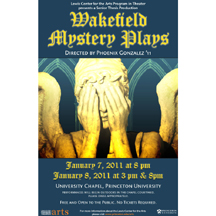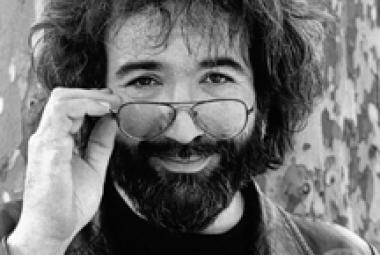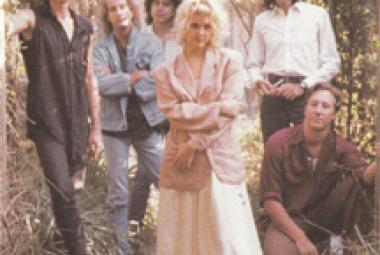WAKEFIELD MYSTERY PLAYS
The Wakefield Mystery Plays (also known as the Towneley Mystery Plays) are a series of thirty-two mystery plays based on the Bible most likely performed around the Feast of Corpus Christi probably in the town of Wakefield, England, during the late Middle Ages until 1576. It is one of only four surviving English mystery play cycles. Some scholars argue that the Wakefield cycle is not a cycle at all, but a mid-sixteenth-century compilation, formed by a scribe bringing together three separate groups of plays. Although almost the entire manuscript is in a fifteenth-century hand, the cycle was performed as early as the fourteenth century in an earlier form. The Wakefield Cycle is most renowned for the inclusion of "The Second Shepherds' Play," one of the jewels of medieval theatre. (More from Wikipedia)
Its first stage production was in 1971 as part of a double billing at the Edinburgh International Festival, with a reworking of the medieval Wakefield Mystery Plays as the first half and Joseph and the Amazing Technicolor Dreamcoat as the second half. Several productions in the UK and the US followed, including a run at London's West End in 1973 and an off-Broadway production that moved to Broadway in 1982.
(October 2014)















